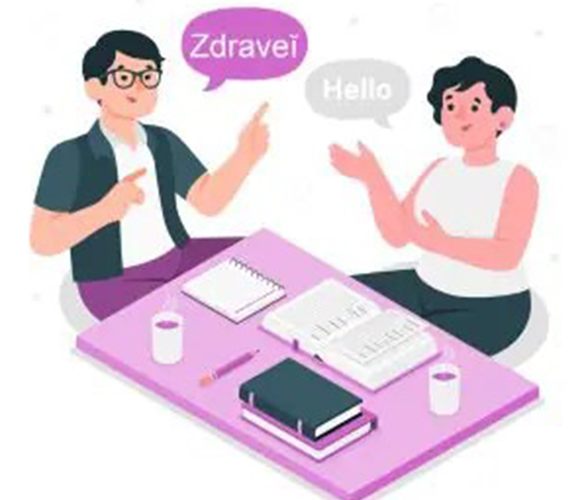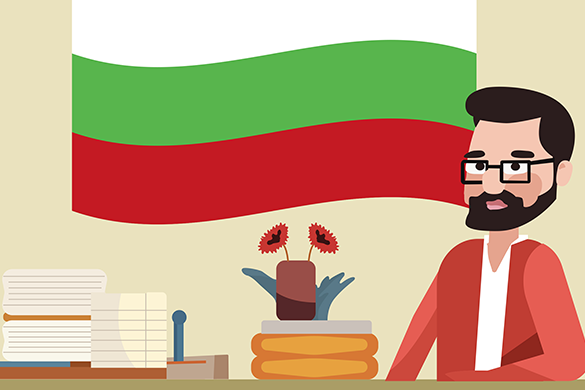Rosetta Translation provides a complete range of professional Bulgarian translation services to companies in London and worldwide.

Rosetta Translation is a professional translation agency providing expert transations in many areas. Our translators are experts for the the translation of legal documents, banking and insurance related translations, technical product manuals and medical and pharmaceutical translations.
We guarantee a consistently superior quality of Bulgarian translation in each of these different fields by making sure we assign every translation to the most appropriate specialised team of highly qualified Bulgarian translators, proofreaders and editors.
We also provide Bulgarian interpreting services in London and worldwide.
For a free instant quote, please contact us at any of our local offices in London, Shanghai, New York, Paris or Luxembourg.
Rosetta is one of only very few translation agencies who have achieved the prestigious ISO 9001:2015 certification as well as the DIN EN 15038 norm, the only certification that specifically checks translation services. Our customers can therefore be completely sure that the quality of our Bulgarian translations is consistently high.
Combined with our use of translation technology and our extraordinary flexibility as regards client needs, this results in the professional and reliable Bulgarian translation services that our numerous regular customers value.
Bulgarian translations can be certified, notarised and legalised to meet your exact requirements.


For our English-Bulgarian translations, we exclusively use experienced, native Bulgarian translators, all of whom specialise in a number of different areas of translation to give the best possible results for our customers. We then make sure the formatting is correct, all of which provides for a final translation of excellent quality.
Bulgarian (Български) is increasingly becoming an important European Slavonic language, especially with Bulgaria’s accession to the EU. There are around 9 million native speakers.
Whether your Bulgarian-English translation assignment is complex, technical or more basic in nature, Rosetta Translation always has experienced translators on hand to deliver, with expertise in a number of areas, from technical computer jargon to pharmaceutical industry terminology.
All our Bulgarian to English translationa are carried out by native English speakers with relevant qualifications in Bulgarian translation.
After the end of communist rule, Bulgaria was opened to several global products and cultures that were previously off limits. This move diversified Bulgarian cultural and linguistic models into what we would more recognise today. This rapid exposure resulted in two major transformations in the Bulgarian language post-communism: 1) Bulgarian’s fast modernisation and adoption of international linguistic components and 2) the boom in the translation of international texts into the Bulgarian language. The latter was not just on prose, but in non-fiction, such a research papers and academic literature. This meant the role of the translator during this period, was, and still is, pivotal in Bulgaria participating in the EU and on the wider global stage.
Bulgaria is also among Europe’s largest producers of lead, zinc and copper, and produces around ten percent of the world’s hydraulic machinery. This means the translation of technical documents is especially pertinent in enabling Bulgarian companies in primary industries to trade within the EU.
If you are needing to translate into, or out of, Bulgarian, we can assure you that your project will be handled by translators who are well versed in the required field. Be it mining, EU regulatory products sheets, marketing or prose, your text will be in experienced hands.
Since joining the EU in 2007, Bulgaria has had to rapidly align its legislation with EU law, and with the large amount of documentation that had to be translated alongside this, the effect on the language has been significant. Many of the terms in legislation were unknown or difficult to translate with the available linguistic resources of the time, meaning creative solutions had to be found. A similar situation happened with most other areas of the average Bulgarian citizen’s life, with the boom in the use of the internet and computerisation. Therefore, in recent years it has become quite common to hear a Bulgarian utter a variation on the phrase “to walk in someone else’s shoes”, although this expression, translated word for word, is not a Bulgarian idiom and would be nonsensical just 40 years ago. Additionally, the increase in global corporate stylistics which have spread internationally have infiltrated the Bulgarian language, having a knock-on effect in the daily language of their young employees.
So what are the common pitfalls we see from these two developments of the Bulgarian language? Notably, word-for-word translation and the trend of borrowing foreign structures in Bulgarian syntax can be a significant concern for those requiring a translation into and out of Bulgarian. For technical specialised translation, this poses less of an issue, but where this is most notable is in the translation of texts more aligned to the marketing and fiction genres.
You can rest assured that at Rosetta Translation we only use translators who are working into their native language and who are experts in their field. These potential pitfalls therefore will always be expertly navigated, and you can remain confident that your text is being translated faithfully, correctly and appropriately.
You might think it surprising to learn that Bulgarian has a total of nine tenses; present, present perfect, past imperfect, past aorist, past perfect, future, future perfect, past future, past future perfect. However, we commonly (incorrectly!) think of English as having just three (past, present, future), but this is down to historically poor teaching of English grammar in UK schools, as English actually has 12. One tense, for those not well versed in Bulgarian or Ancient Greek, the past aorist, is usually used to denote perfective aspect and refer to past events. In very simplistic terms, it’s used to express some kind of action (especially a past action) without indicating whether that action was completed or still ongoing.
Even though this tense does not exist in the English language, our translators are experienced in handling this linguistic quirk. You can therefore be sure that no odd turns of phrase will appear in your Bulgarian-English translation because of this very rare tense!






What is the UN French Language Day? On 20 March, we once again celebrate UN French Language Day, a global celebration of linguistic diversity and cultural exchange. Created by the United Nations in 2010, this day is to remind us …

